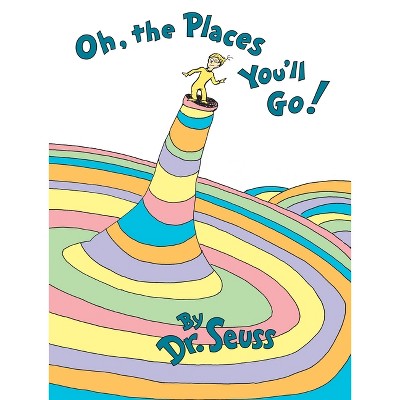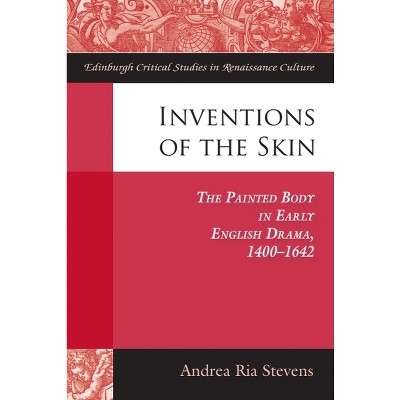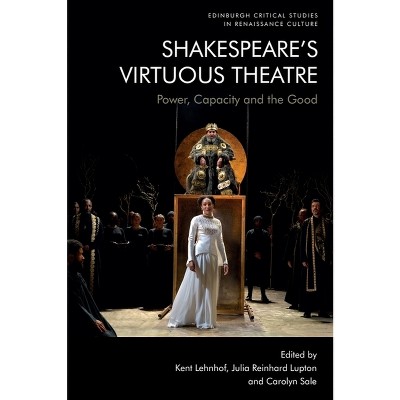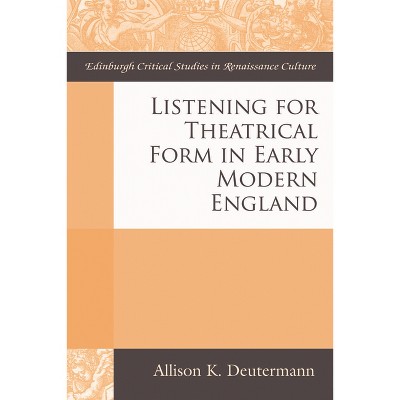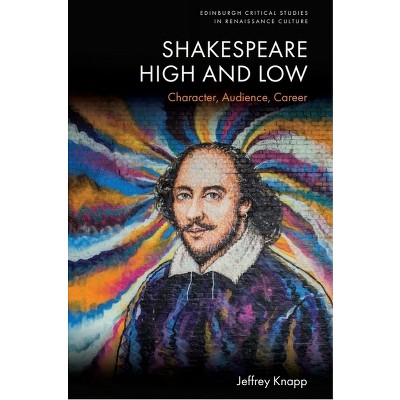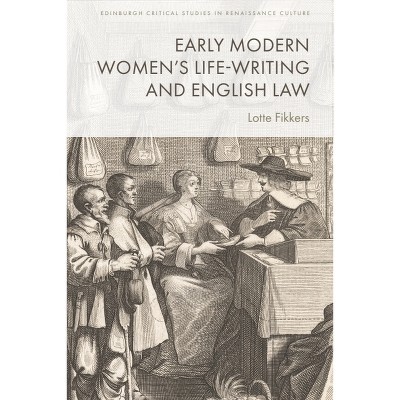Epistolary Courtiership and Dramatic Letters - (Edinburgh Critical Studies in Renaissance Culture) by Jackie Watson (Hardcover)

About this item
Highlights
- Through an analysis of the career of the eminent courtier Sir Thomas Overbury, Epistolary Courtiership and Dramatic Letters re-examines what is meant by courtiership in the Jacobean period.
- About the Author: Jackie Watson is an independent scholar, with a PhD from Birkbeck College, University of London.
- 288 Pages
- Literary Collections, European
- Series Name: Edinburgh Critical Studies in Renaissance Culture
Description
About the Book
Analyses how the political career of Sir Thomas Overbury exposes the changing systems of power at the English court between 1603 and 1613Book Synopsis
Through an analysis of the career of the eminent courtier Sir Thomas Overbury, Epistolary Courtiership and Dramatic Letters re-examines what is meant by courtiership in the Jacobean period. With a particular focus on the years between 1609 and 1613, the book brings together many of the letters surrounding the scandal leading to Overbury's murder and provides an examination of epistolarity in the context of humanist and legal learning. Defining key themes of social mobility, homosociality and the legal power of James VI and I, it exposes the mechanisms by which men rose at his court and provides a context for a new reading of contemporary dramatic texts by Shakespeare, Webster and Chapman. The book argues that the changing performance of courtiership at James's court, the wider knowledge of that reflected in contemporary letters and consequently shifting attitudes, all alter the performance of courtiership in the playhouse.From the Back Cover
[headline]Analyses how the political career of Sir Thomas Overbury exposes the changing systems of power at the English court between 1603 and 1613 Through an analysis of the career of the eminent courtier Sir Thomas Overbury, Epistolary Courtiership and Dramatic Letters re-examines what is meant by courtiership in the Jacobean period. With a particular focus on the years between 1609 and 1613, the book brings together many of the letters surrounding the scandal leading to Overbury's murder and provides an examination of epistolarity in the context of humanist and legal learning. Defining key themes of social mobility, homosociality and the legal power of James VI and I, it exposes the mechanisms by which men rose at his court and provides a context for a new reading of contemporary dramatic texts by Shakespeare, Webster and Chapman. The book argues that the changing performance of courtiership at James's court, the wider knowledge of that reflected in contemporary letters and consequently shifting attitudes, all alter the performance of courtiership in the playhouse. [bio]Jackie Watson is an independent scholar, with a PhD from Birkbeck College, University of London. Her published work has centred on early modern law and literature, and on literary ideas of the senses in the early modern period. She is co-chair of the Mapping the Early Modern Inns of Court project and co-edited The Senses in Early Modern England, 1558-1660 (2015, with Simon Smith and Amy Kenny).Review Quotes
Jackie Watson's rich and generative book does two things with real brio. Firstly and archivally, she reimagines Overbury as courtier through a detailed, lucid attention to his letters, reading his life rather than his sensational death. Secondly, and conceptually, she makes the case for correspondence as compelling drama.
--Emma Smith, University of OxfordAbout the Author
Jackie Watson is an independent scholar, with a PhD from Birkbeck College, University of London. Her published work has centred on early modern law and literature, and on literary ideas of the senses in the early modern period. She is co-chair of the Mapping the Early Modern Inns of Court project. She contributed chapters to Playing and Playgoing in Early Modern England, edited by Simon Smith and Emma Whipday (2022) and to Shakespeare/Sense, edited by Simon Smith (2020). Jackie co-edited The Senses in Early Modern England, 1558-1660 (2015).
Shipping details
Return details
Trending Fiction

